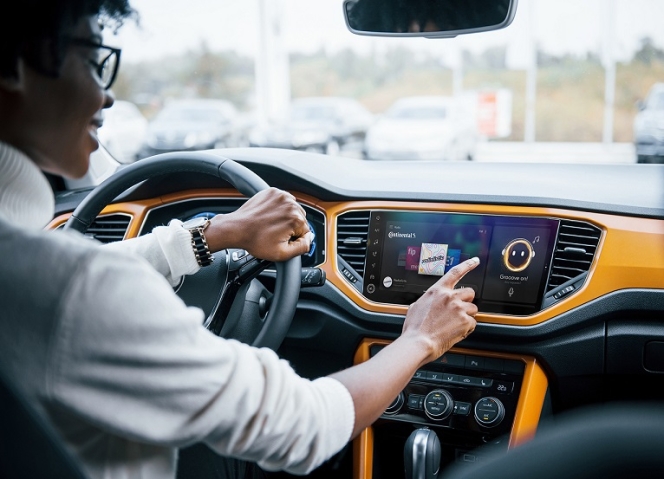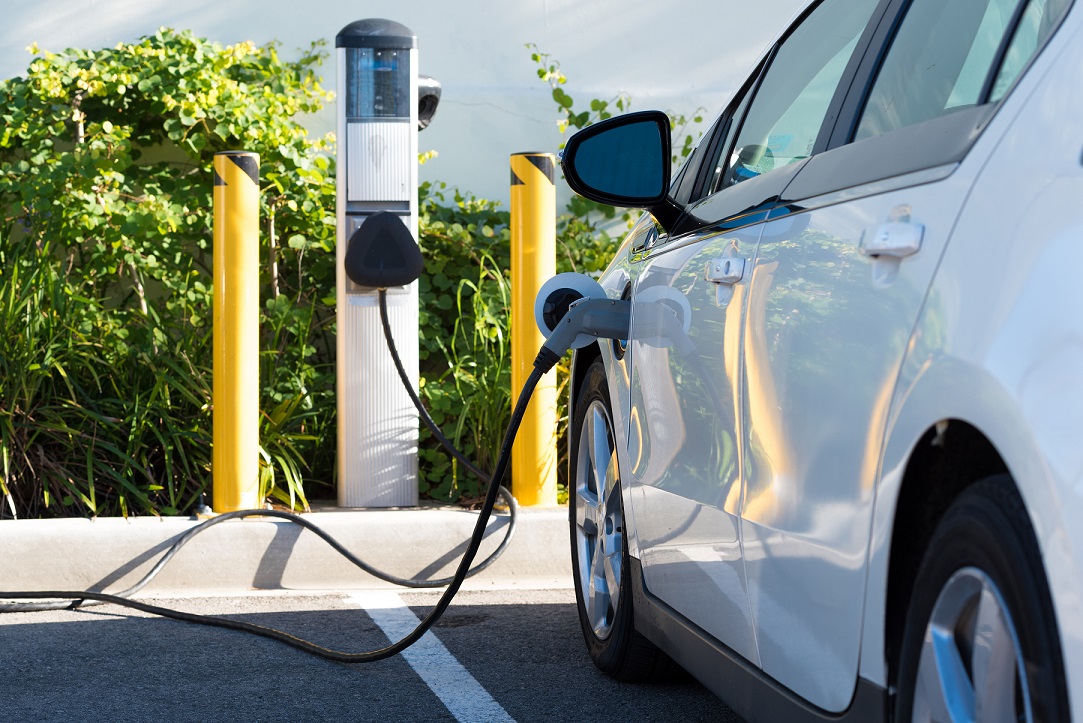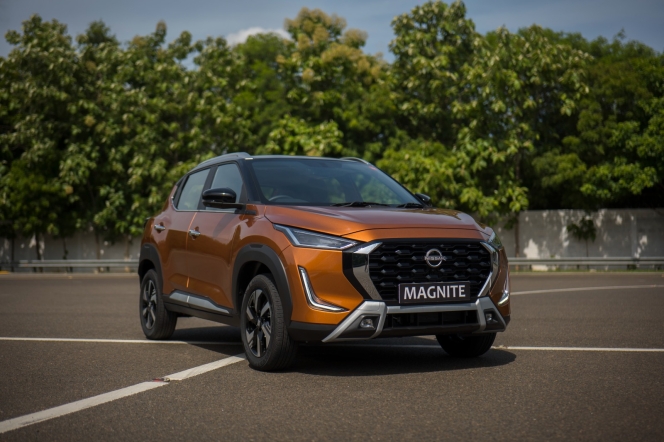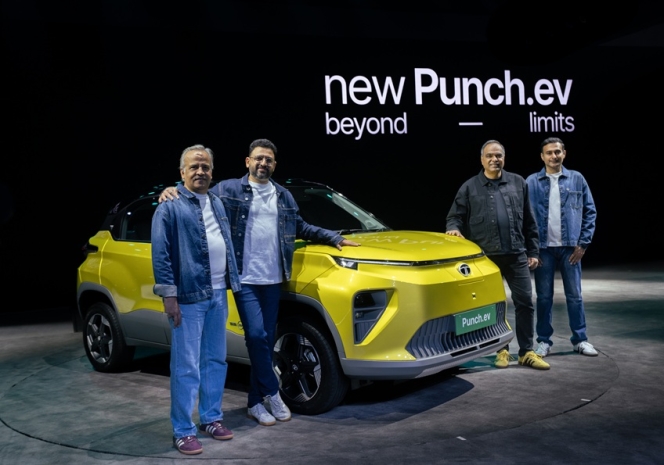Young People See Cars As Status Symbol Finds Continental Study
- By MT Bureau
- October 30, 2024

German tier 1 supplier Continental recently commissioned a representative mobility study in August 2024 to understand the perception about young people on mobility needs.
For the Mobility Study 2024, infas was commissioned by Continental in August 2024 to survey a total of around 5,000 people aged 18 and over in Germany, China, France, Japan and the USA about their mobility habits and attitudes to a variety of mobility issues. In each country, the respective sample is representative of the population; for China, it is representative of the urban population. The aim of the Continental Mobility Study, now in its eighth edition since 2011, is to provide an international comparison of people’s attitudes toward current and future developments in mobility and their personal usage habits. The range of topics covered in this year’s study included automated driving, user experience, AI in cars, sustainable mobility concepts, mobility in urban areas, the affordability of mobility and attitudes toward government regulation in the mobility sector.
The key findings found that overall, 84 percent of car owners in Germany, regardless of age, believe that it is important to own a car. For almost 90 percent, having a car is essential for shopping and running other errands. The majority of young people in Germany are particularly enthusiastic about technological advances in cars. They look forward to the benefits self-driving cars will offer in terms of being able to read, play video games or work (51 percent of 25 to 34-year-olds). In addition to autonomous driving, artificial intelligence (AI) in the form of digital voice assistants is very popular with this group. There is a similar level of approval in the four other countries surveyed in the study.
Philipp von Hirschheydt, Executive Board member responsible for the Automotive group sector, Continental, said, “The findings show that the response to new technologies such as automated driving, large displays and AI in cars varies greatly between generations and also between countries. That’s why we aim to provide customised solutions – market-specific, tailor-made and modular.”
The findings of the study also reveal the current status of the trend toward lower-emission mobility worldwide. Particularly striking is that acceptance of fully electric cars remains low.
In Germany, only 3 percent of all car owners have an electric vehicle. However, just over a third of respondents who do not yet own an electric vehicle believe their next car will be fully electric (39 percent, compared with 34 percent in 2022). By contrast, hybrid drives are highly popular across all countries. In Germany (48 percent) and the USA (47 percent), nearly half of respondents who do not own an electric car can imagine their next vehicle being a hybrid with a combustion engine and an electric motor.
In China, that figure rises to almost nine out of 10 respondents (86 percent). This means that hybrid cars could increasingly bridge the gap to e-mobility and give it a renewed boost. With a share of 68 percent, younger people in Germany aged between 25 and 34 are particularly interested in electric cars – also compared with their international peers.
Vehicle as a status symbol
On the one hand, younger people up to the age of 34 in Germany do not feel that attached to cars. For them, more than for older respondents, it is one of many means of transportation available. On the other hand, generation Y and Z drivers born in the 1990s and later have a clear emotional connection to their cars: for more than half of 18 to 34-year-olds (54 percent) in Germany, cars are regarded as a status symbol – twice the share among respondents aged 45 and over. People aged between 18 and 34, particularly those living in large cities, see cars as a prestige item (67 percent). In small towns and rural areas, the approval rate is around 49 percent. This view of the car is accompanied by growing expectations. Of the 25 to 34-year-olds surveyed, for example, 51 percent believe that cars of the future should not only be a safe means of transportation, but also a place to relax and work.
Tech attracts young people
The study also found that younger people in Germany also had a positive attitude toward highly automated and autonomous driving, with around two-thirds (65 percent) of 18 to 34-year-olds seeing this as a useful development. Among older respondents aged 55 and over, 39 percent share this view. Around two-thirds of younger people up to the age of 34 also believe that state-of-the-art technologies should be mandatory in newly registered cars in order to make traffic even safer – a viewpoint that signals approval of the EU directive requiring certain advanced driver assistance systems in new cars, which has been in force since July 2024.

Another future technology that is particularly popular with younger people is AI assistants in cars. Almost three-quarters of respondents (74 percent) between the ages of 18 and 34 would welcome an AI voice as a service that, like a virtual travel companion, provides useful information about sights and restaurants along the route, finds the nearest gas or charging station, searches for free parking spaces or even compiles personal messages.
“Younger people in particular have changing expectations of cars. These are closely linked to pioneering technologies such as automated driving, which deliver new user experiences. At Continental, we’re already equipping cars with AI. Together with our partner Google Cloud, we have developed a virtual companion for drivers. We are particularly proud to be one of the first automotive suppliers worldwide to integrate Google Cloud applications directly into our vehicle computers,” added Hirschheydt.
Autonomous & AI
The comparison between countries reveals a widespread openness to highly automated and autonomous driving in Asia across all age groups. In China, nine out of 10 respondents (90 percent) view the relevant technologies as a useful development, while in Japan, almost three-quarters (72 percent) share this sentiment. In France (60 percent) and the USA (56 percent), more than half of those surveyed have a positive attitude. In Germany, around one in two respondents (49 percent) feel the same. An AI-powered virtual travel companion is particularly popular in China, where nine out of 10 respondents (91 percent) say they would like to have such a service. In the USA (66 percent) and Japan (63 percent), around two-thirds express this wish, while in France (58 percent) and Germany (57 percent) more than half would be happy to have the technology.
There is broad agreement across all countries on the ideal size of a car display for infotainment content. Most people prefer larger displays, with 90 percent of respondents in China favouring this option.
In Germany (81 percent), France (79 percent) and the USA (80 percent), eight out of 10 respondents would like their navigation, vehicle data and music to be shown on large screens.
In Japan, the figure is more than two-thirds (69 percent). However, preferences differ significantly when it comes to technological details. While the majority of respondents in Japan (79 percent) and more than half in Germany (57 percent) prefer a simpler display on car screens, a slight majority in the USA (58 percent) favour more colours. By contrast, many features are popular in China (69 percent). In Japan (70 percent), the majority prefer a more straightforward digital design, while in Germany, around half feel the same way (55 percent).
There are also differences between countries when it comes to the question of whether a display should be controlled by voice or manually: voice control is particularly popular in Japan (67 percent), more than half are in favour of it in China (59 percent), while the number is significantly lower in Germany (43 percent). In the USA, just over half (55 percent) also prefer to operate a display manually.
Hybrid
The study shows that hybrid drivers in Germany have an above-average interest in all-electric mobility – a strong indication that hybrid cars can play a key role as a bridging technology for the transition to fully electric drives.
For example, 43 percent of respondents who currently use a vehicle with a combined combustion engine and electric motor say that their next car will definitely be an all-electric vehicle. Those who drive a gasoline or diesel vehicle are significantly less open to such a switch (12 and 19 percent respectively). In addition, a clear majority (58 percent) of hybrid drivers would be willing to buy an electric car without a government subsidy.
The data suggests that hybrid vehicles are boosting people’s confidence in e-mobility and may help reduce any reservations about fully electric vehicles. One group with significant future potential for this development is the 48 percent of respondents who do not drive an electric or hybrid car and for whom an all-electric car is not currently an option, but who are considering a hybrid as their next car.
Varying degree in e-cars
The shift to electric mobility is under pressure in Germany, where sales of all-electric cars are faltering. According to the latest figures of the Continental study, electric cars represent a significant share (10 percent) of the overall passenger-car fleet in China, while only 3 percent of respondents in Germany drive an all-electric car and 91 percent a car with a combustion engine (China: 80 percent). There is potential for higher sales of electric cars in Germany, particularly among those aged 18 to 34. In this age group, around two-thirds (64 percent) of respondents believe it is certain or likely that their next car will be fully electric – a trend that gradually diminishes in older generations.

A look at age-dependent attitudes toward electric mobility reveals that, like many other technological developments, e-mobility is more appealing to younger drivers than older ones. They are more willing to forgo subsidies: 50 percent of 25 to 34-year-olds would consider buying an electric car without government assistance. However, the willingness to fully finance an electric vehicle decreases significantly among those aged 45 and older.
EVs and subsidy
The study found that two-thirds of respondents in Germany link the purchase of an electric car to a government subsidy is an expression of their concerns about being unable to finance an electric car on their own. In Germany, 71 percent of respondents worry that mobility will no longer be affordable due to rising energy prices. In the 2022 Mobility Study, 73 percent of people in Germany expressed their concerns about the affordability of mobility.
What’s more, 65 percent of respondents fear that they will not be able to afford an electric car in the near future and 56 percent are worried that driving could soon become too expensive for them. As a result, a clear majority (80 percent) expect policymakers to create the framework conditions to ensure that driving remains affordable. At the same time, they believe driving should be made more sustainable in the most cost-neutral way possible. Almost three-quarters (73 percent) of respondents think that the cost of environmentally friendly cars needs to fall. Regulatory interventions such as a speed limit of 130 kmph on highways are met with acceptance (62 percent), provided they do not lead to price increases. Younger respondents are less price-sensitive. They are much more prepared to pay a premium for environmentally friendly cars, especially if they are completely carbon-neutral in production and operation (40 percent of 18 to 24-year-olds compared with 13 percent of 45 to 54-year-olds).
Sustainable tyres
Sustainability is an important concern for people with cars is also demonstrated by their attitude to tyres. According to the study, almost eight out of 10 drivers in Germany (84 percent) who also value tyre recycling consider it important that their tyres contain an increasing share of environmentally friendly materials. When purchasing tyres, younger people (61 percent of 25 to 34-year-olds) are more concerned than older people about what happens to the tyres at the end of their service life.
Furthermore, 44 percent of car owners in Germany would be willing to pay a premium for tyres made from a higher share of renewable and sustainable materials. Here again, this willingness is most pronounced among 25 to 34-year-olds (65 percent).
- Stellantis
- Jeep India
- Jeep Wrangler Willys 41 Limited Edition
- Jeep Rubicon
- Jeep Willys MB
- Kumar Priyesh
Jeep India Reintroduces Wrangler Willys 41 Limited Edition
- By MT Bureau
- February 24, 2026

Jeep India has announced the return of the Wrangler Willys 41 Limited Edition. The release follows the 2025 edition of the vehicle, which sold out within seven days. This model is inspired by the 1941 Willys MB and is limited to 41 units for the Indian market.
The limited edition is available at Jeep dealerships across India at a premium of INR 200,000 over the standard Rubicon price. The optional accessory kit is priced at INR 3,60,000.
The model is based on the Rubicon variant and includes heritage design cues such as WWII-themed graphics and ‘One of 41’ badging. It is positioned as a tribute to the brand's military origins and off-road history.
The Wrangler Willys 41 includes several hardware updates as standard:
- Motorised Side Steps: Automated steps for cabin entry and exit.
- Integrated Digital Video Recorder: A dash camera system for journey documentation.
- Heritage Detailing: Specific graphics and badging throughout the exterior and interior.
Jeep has also introduced an optional accessory kit for this edition. The kit includes: Roof Carrier – a storage system with an integrated side ladder. Sunrider Roof Top – an open-air roof solution.
Kumar Priyesh, Business Head and Director – Automotive Brands, Stellantis India, said, “The Willys legacy is more than a story – it is the foundation of Jeep’s character. The Wrangler Willys 41 2.0 is our tribute to that heritage. It reflects the spirit of the original 1941 Willys MB while delivering the capability, authenticity and emotional connection that Jeep owners value deeply blending timeless Willys cues with contemporary engineering to deliver capability, exclusivity and character in equal measure.”
Nissan Motor India Announces Finance Scheme For Magnite
- By MT Bureau
- February 23, 2026

Nissan Motor India (NMIPL) has launched a retail finance scheme for the Nissan Magnite through Nissan Renault Financial Services India (NRFSI). The offer is available for vehicle bookings made until the end of March 2026.
The scheme provides a rate of interest (ROI) starting at 5.55 percent for customers with a CIBIL score. It includes options for 100 percent on-road funding, which covers the vehicle cost, registration, insurance and associated charges.
The programme is designed to provide repayment flexibility with loan tenures extending up to seven years. NRFSI has structured the product to include specific facilities for borrowers:
Foreclosure: Zero charges for closing the loan after 24 months.
Payments: Provision for part-payment of the loan amount.
Processing: A digital loan process, excluding KYC and RTO documentation.
Support: Access to a 24x7 WhatsApp chatbot and dedicated customer care.
The finance package includes additional incentives valued up to INR 22,000 for customers choosing NRFSI. Existing Nissan customers are eligible for loyalty benefits and add-on advantages when opting for this finance route.
The 5.55 percent ROI is applicable for a loan amount of INR 500,000, which Nissan states provides an EMI advantage compared to rates currently offered by commercial banks.
Tata Motors Launches New Punch.ev At INR 969,000
- By MT Bureau
- February 20, 2026

TATA.ev has launched the new Punch.ev in India, positioned to accelerate the transition to electric mobility in the entry-level segment with prices starting INR 969,000 (ex-showroom, Mumbai) for the 30 kWh battery variant, while the 40 kWh variant can be had at INR 1.08 million.
Furthermore, the company has also marked the introduction of Battery-as-a-Service (BaaS) financing model, which lowers the initial purchase price to INR 649,000, supplemented by a battery EMI of INR 2.6 per kilometre.
The Punch.ev is built on the acti.ev architecture and offers two battery configurations to address varying range requirements:
- Long Range: Features a 40 kWh LFP prismatic cell battery pack. It delivers a real-world range of approximately 355 km and an ARAI-certified range of 468 km.
- Standard Range: Includes a 30 kWh battery pack option for city-focused use.
The EV supports express charging, allowing the battery to transition from 20 percent to 80 percent in 26 minutes. A 15-minute charge can provide 135 km of real-world range.
TATA.ev has established a network of over 230,000 charging points across 1,500 cities. This includes a ‘.ev Verified’ network of 2,500 fast chargers and 130 hubs on 80 highways. The company plans to expand its highway charging presence to 800 points by the March 2026.
To support first-time buyers, TATA.ev has introduced a lifetime warranty on the high-voltage (HV) battery, covering unlimited kilometres. This measure is intended to address concerns regarding battery longevity and maintenance costs.
Shailesh Chandra, Managing Director, Tata Motors Passenger Vehicle and Tata Passenger Electric Mobility, said, “The new Punch.ev, makes electric mobility truly accessible, practical and worry free for every household. With a real-world range of around 355 km, fast charging capability, a lifetime HV battery warranty and a highly accessible price point, it resolves the core concerns that have thus far held customers back from choosing an entry level EV as their primary car. By bringing together everything customers seek in their preferred car for both daily and long-distance travel, the new Punch.ev marks a significant leap forward in the democratisation of electric mobility in India.”
The Punch.ev can be had in three versions: Smart, Adventure and Empowered.
Volkswagen India Launches Tayron R-Line SUV At INR 4.69 Million
- By MT Bureau
- February 19, 2026

Volkswagen Passenger Cars India has launched the Tayron R-Line SUV at an introductory price of INR 4.69 million (ex-showroom).
The Tayron R-Line features R-Line styling and is manufactured using the brand's design DNA and is part of the company’s strategy to expand its portfolio in the premium segment in India.
The SUV is powered by a 2.0-litre TSI EA888 evo4 engine, producing 204 PS and 320 Nm of torque. It comes with a 7-speed DSG transmission and the 4MOTION All-Wheel Drive (AWD) system, which allows drivers to select from six driving profiles.
In terms of dimensions, it is 4792 mm in length, 1866 mm width and 1665 mm height. The wheelbase is 2789 mm features 19-inch Coventry alloys. On the inside, it gets a 38.1 cm infotainment screen and a 26.03 cm digital cockpit. The front seats feature 12-way electric adjustment with memory, ventilation, heating and an 8-mode massage function.
The Tayron R-Line features IQ Light with HD Matrix LED headlamps and illuminated front and rear logos. It is equipped with 11-speaker Harman Kardon sound system with 700 watts output, dual 45W USB-C ports and wireless charging for two devices. Augmented Reality (AR) head-up display and gesture-controlled tailgate.
In terms of safety, the Tayron R-Line is equipped with Level 2 ADAS featuring 14 functions. Standard safety equipment includes 9 airbags, Electronic Stability Control, and Hill Ascent and Descent control.
Nitin Kohli, Brand Director, Volkswagen Passenger Cars India, said, “The Tayron R-Line embodies our vision of aspirational premium cars that add meaningful value to customer lives. It is designed for those who value performance as much as luxury, and who seek a vehicle that reflects their progressive mindset. With the Tayron R-Line, we are reinforcing our commitment to bringing globally admired, performance-led products that elevate the brand’s presence in India.”
The Tayron R-Line SUV can be had in seven colour options: Dolphin Grey Metallic, Oyster Silver Metallic, Ultraviolet Metallic, Cipressino-Green Metallic, Nightshade Blue Metallic, Grenadilla Black Metallic and Oryx White Mother-of-Pearl Effect.






Comments (0)
ADD COMMENT